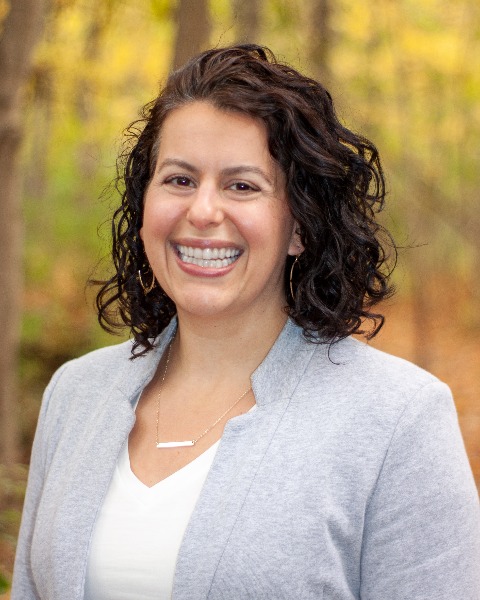Back
Research & Innovation
Reimagining Safer Suicide Care in Corrections: A Zero Suicide Approach
Tuesday, April 1, 2025
12:00 PM – 12:30 PM East Coast USA Time
Location: Kojo Kamau Ballroom B, 4th Floor, Tower 402

Laurin Jozlin, LMSW (she/her/hers)
Senior Project Associate
EDC- Zero Suicide Institute
Huntington Woods, Michigan, United States
Amy Molloy, MSW, MEd.
Senior Project Associate
Zero Suicide at EDC
Spring, Texas, United States
Speaker(s)
Body of Abstract: Title: Reimagining Safer Suicide Care in Corrections: A Zero Suicide Approach
Abstract: Suicide is the leading cause of preventable death in jails and correctional facilities, with alarming increases over the past two decades—an 85% rise in state prisons, a 61% rise in federal prisons, and a 13% rise in jails (U.S. Department of Corrections, 2021). While correctional systems work to reduce suicide deaths, many facilities face significant barriers to effective care, including financial constraints, time limitations, inadequate training, and cultural attitudes.
Additionally, corrections officers experience higher rates of suicide. A survey of California corrections officers highlighted a troubling reality: 10% reported having contemplated suicide, with nearly one-third expressing such thoughts often or sometimes over the past year—yet 73% chose not to share these feelings with anyone (Lerman, 2017). Data from 2010 to 2015 reveals that the average suicide rate among corrections officers in Massachusetts was approximately 105 per 100,000, a staggering seven times higher than the national average of 14 per 100,000 and nearly 12 times higher than the state rate of nine per 100,000 (Frost, 2021).
By adopting the Zero Suicide framework, correctional systems, such as the South Carolina Department of Corrections, are beginning to foster a culture of safety and support. This model aims to identify individuals at risk of suicide, establish comprehensive care pathways, provide targeted treatment, enhance clinician competency, and ultimately improve clinical outcomes.
This session will delve into the Zero Suicide model, grounded in trauma-informed care and a just culture showcasing its application within correctional environments like South Carolina. Trauma-informed care emphasizes understanding the impact of trauma on individuals, promoting safety, trustworthiness, and empowerment in all interactions. By recognizing that many inmates and staff members have experienced trauma, this approach helps create a supportive environment that prioritizes healing and recovery.
Moreover, culture change is a critical component of the Zero Suicide framework. By shifting attitudes toward mental health and suicide prevention within correctional facilities, Zero Suicide encourages open dialogue, reduces stigma, and fosters an environment where both staff and inmates feel safe seeking help. Supporting the mental health and well-being of corrections officers is essential, as their emotional resilience directly influences their ability to maintain a secure environment to provide safer suicide care.
We will discuss the transformative benefits of implementing this framework, emphasizing cultural change, trauma sensitivity, and the promotion of suicide care support for both staff and inmates. Attendees will gain insights into practical strategies for overcoming challenges in implementing Zero Suicide and hear specific examples of successful implementations in correctional settings.
Abstract: Suicide is the leading cause of preventable death in jails and correctional facilities, with alarming increases over the past two decades—an 85% rise in state prisons, a 61% rise in federal prisons, and a 13% rise in jails (U.S. Department of Corrections, 2021). While correctional systems work to reduce suicide deaths, many facilities face significant barriers to effective care, including financial constraints, time limitations, inadequate training, and cultural attitudes.
Additionally, corrections officers experience higher rates of suicide. A survey of California corrections officers highlighted a troubling reality: 10% reported having contemplated suicide, with nearly one-third expressing such thoughts often or sometimes over the past year—yet 73% chose not to share these feelings with anyone (Lerman, 2017). Data from 2010 to 2015 reveals that the average suicide rate among corrections officers in Massachusetts was approximately 105 per 100,000, a staggering seven times higher than the national average of 14 per 100,000 and nearly 12 times higher than the state rate of nine per 100,000 (Frost, 2021).
By adopting the Zero Suicide framework, correctional systems, such as the South Carolina Department of Corrections, are beginning to foster a culture of safety and support. This model aims to identify individuals at risk of suicide, establish comprehensive care pathways, provide targeted treatment, enhance clinician competency, and ultimately improve clinical outcomes.
This session will delve into the Zero Suicide model, grounded in trauma-informed care and a just culture showcasing its application within correctional environments like South Carolina. Trauma-informed care emphasizes understanding the impact of trauma on individuals, promoting safety, trustworthiness, and empowerment in all interactions. By recognizing that many inmates and staff members have experienced trauma, this approach helps create a supportive environment that prioritizes healing and recovery.
Moreover, culture change is a critical component of the Zero Suicide framework. By shifting attitudes toward mental health and suicide prevention within correctional facilities, Zero Suicide encourages open dialogue, reduces stigma, and fosters an environment where both staff and inmates feel safe seeking help. Supporting the mental health and well-being of corrections officers is essential, as their emotional resilience directly influences their ability to maintain a secure environment to provide safer suicide care.
We will discuss the transformative benefits of implementing this framework, emphasizing cultural change, trauma sensitivity, and the promotion of suicide care support for both staff and inmates. Attendees will gain insights into practical strategies for overcoming challenges in implementing Zero Suicide and hear specific examples of successful implementations in correctional settings.
Learning Objectives:
- Explain the rationale for why suicide care needs to be improved in correctional settings for inmates and staff.
- Adopt the Zero Suicide model for correctional settings
- Identify common barriers and solutions to barriers for implementing Zero Suicide in correctional settings
- Promote strategies to support the mental health and well-being of corrections officers and inmates
